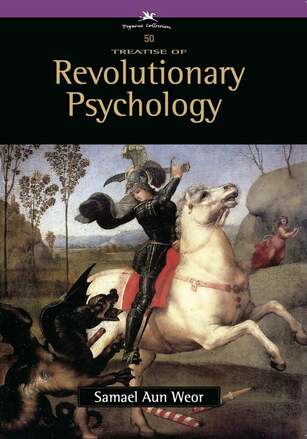Chapter 16: The Book Of LifeA person is what his life is. That, which continues beyond death, is life.
This is the significance of the book of life which is opened with death. Looking at this matter from a strictly psychological point of view, any day in our life is really a tiny replica of the totality of our life. From this we may infer the following: if a person does not work on himself today, he will never change. |
When someone claims that he wants to work on himself, and he does not do it today, postponing it until tomorrow, such a claim will be a simple scheme, and nothing more, because within today is the replica of our entire life.
There exists a common saying, “Do not leave for tomorrow what can be done today.”
If a man says, “I will work on myself tomorrow,” he will never work on himself because there will always be a tomorrow.
This is very similar to a certain sign that some merchants put in their stores, “TODAY NO CREDIT, BUT TOMORROW, YES.”
When someone needy arrives asking for credit, he comes upon this terrible sign, and if he returns the next day, once more he finds this wretched notice.
This is what is called in psychology, the sickness of tomorrow. As long as a man says tomorrow, he will never change.
We need, with the greatest urgency, without delay, to work on ourselves today, not to dream lazily of the future or of an extraordinary opportunity.
Those who say, “I will first do this or that and then I will work,” will never work on themselves. They are the dwellers of the earth, mentioned in the Holy Scriptures. I knew a powerful landlord that used to say, “I first need to be well-off and then I will work on myself.”
When he was terminally ill, I visited him, and asked him the following question: “Do you still want to be well-off?” “I truly lament having wasted my time,” he replied. He died some days later, after having recognized his mistake.
That man had a lot of land already but he wanted to own the neighboring properties, to become well-off, with the aim that his estate would be exactly bordered by four roads.
The Great Kabir Jesus said, “Each day has enough trouble of its own.” Observe ourselves this very day, as a continuously recurring day, a miniature of our entire life.
When a man begins to work on himself today, right now when he observes his displeasures and sorrows, he is on the path of success.
It would be impossible to eliminate what we do not know.
We must first observe our own errors.
We need not only to know our day, but also how we relate to it. There exists a particular, ordinary day which each person experiences directly, except for those unusual,
uncommon events.
It is interesting to observe the daily recurrence, each person’s repetition of words and events, and so on.
This repetition or recurrence of events and words deserves to be studied, it leads us to self-knowledge.
There exists a common saying, “Do not leave for tomorrow what can be done today.”
If a man says, “I will work on myself tomorrow,” he will never work on himself because there will always be a tomorrow.
This is very similar to a certain sign that some merchants put in their stores, “TODAY NO CREDIT, BUT TOMORROW, YES.”
When someone needy arrives asking for credit, he comes upon this terrible sign, and if he returns the next day, once more he finds this wretched notice.
This is what is called in psychology, the sickness of tomorrow. As long as a man says tomorrow, he will never change.
We need, with the greatest urgency, without delay, to work on ourselves today, not to dream lazily of the future or of an extraordinary opportunity.
Those who say, “I will first do this or that and then I will work,” will never work on themselves. They are the dwellers of the earth, mentioned in the Holy Scriptures. I knew a powerful landlord that used to say, “I first need to be well-off and then I will work on myself.”
When he was terminally ill, I visited him, and asked him the following question: “Do you still want to be well-off?” “I truly lament having wasted my time,” he replied. He died some days later, after having recognized his mistake.
That man had a lot of land already but he wanted to own the neighboring properties, to become well-off, with the aim that his estate would be exactly bordered by four roads.
The Great Kabir Jesus said, “Each day has enough trouble of its own.” Observe ourselves this very day, as a continuously recurring day, a miniature of our entire life.
When a man begins to work on himself today, right now when he observes his displeasures and sorrows, he is on the path of success.
It would be impossible to eliminate what we do not know.
We must first observe our own errors.
We need not only to know our day, but also how we relate to it. There exists a particular, ordinary day which each person experiences directly, except for those unusual,
uncommon events.
It is interesting to observe the daily recurrence, each person’s repetition of words and events, and so on.
This repetition or recurrence of events and words deserves to be studied, it leads us to self-knowledge.


